This Is Us. It’s one of my favorite new shows. I love it for many reasons. One is because it has a main character who is an adoptee in the middle of a reunion with his birth family while still close with his adoptive family. Neither the birth family or the adoptive family is demonized or romanticized. And, complicated issues are also dealt with and shown. This Is Us acknowledges drug use, abuse, and recovery. It explores race and identity, which is often ignored, in general, but especially as it relates to adoption. There are lots of messy feelings about loss, loyalty, and betrayal. The bonds of love are celebrated and the limits of love are shown as one. One can mean well and cause pain and harm and betrayal (parent). One can feel love and still have questions, voids, curiosity, and loss (child, while young as while adult).
That’s pretty amazing stuff for TV show to cover.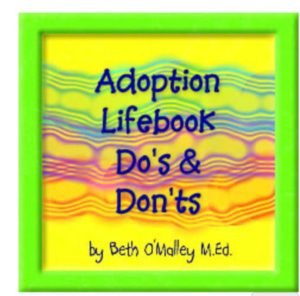
So when I But when I asked the person in my life who knows more about adoption than anyone else what she thinks of the show.
“It’s not for me,” Beth said. “I don’t watch it.”
“What?”
This surprised me. She was in foster care. She was adopted as an infant. She is an adoptive parent. She writes, thinks, sleeps and breathes adoption stuff. She spent her career working as a social worker in the adoption unit.
And we have similar values and taste in TV shows.
So I watched the last show feeling a little less weeping and a bit more objectively. I could see how romanticized, glamorized and unrealistic the adoption reunion story has been. Few, in real life, get this much wonderful connection, contact, and closure so quickly after starting a search.
I still love the show and will be watching every week. But I’m not going to try to convince Beth to do so. And I’m going to keep thinking more about adoption and listen to what adults who have been adopted are saying about this show. This week, Beth wrote another adoption newsletter. It’s something she’s done once a month for over a decade. I thought I’d share a bit about what she thinks about when she thinks about adoption and how, from her, I’ve learned about lifebooks.
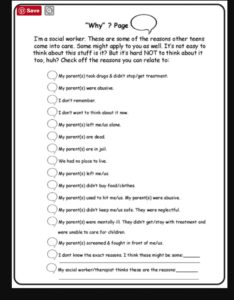
They are practical because they may be the one place a child can have to store names and addresses and important dates. It can be where to store information, such as the phone number of a sibling placed somewhere else. They are honest. They share a narrative story to help a kid know the truth about their own life history. They allow for feelings, complicated and real, such as how much children love their parents even when those parents have been abusive, neglectful or absent.
Lifebooks, when done well, are honest. They share a narrative story to help a kid know the truth about their own life history. The books are written for the child’s benefit and aren’t about them. It’s a place where a child can practice words that talk about life and help to prepare for answering awkward questions he or she might get from teachers, friends, and even professionals. They allow for feelings, complicated and real, such as how much children love their parents even when those parents have been abusive, neglectful or absent.
Lifebooks are therapeutic, allowing for feelings, complicated and real, such as how much children love their parents even when those parents have been abusive, neglectful or absent. They are not therapy. They are a place to capture the story of one’s life as it is being lived.
I was not adopted and I was not in foster care. I was abandoned and had social worker supervised visits with my father for a short time when I was young. I love lifebooks and wished I had one as a kid. If I had maybe I would have known my father’s birthday or the name of my paternal grandparents, or a few details that I could hang on to. Talking about him wasn’t a constant in our house. He had been violent, irresponsible and caused a lot of pain. For my mother, speaking about him wasn’t fun or pleasant or nostalgic. So it was rarely done. Topics that aren’t talked about are still thought about but kids use kid logic and make up their own stories. I did.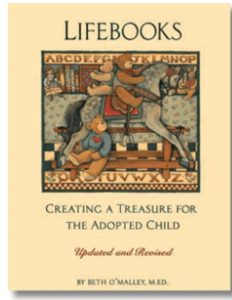
Lifebooks are a way to acknowledge and honor a child’s actual life and family and history. They are simple and straightforward. When I became a mother myself I made one for my daughter as we found language to talk about her adoption and experience. The book wasn’t about my joy at becoming her mother but when she was born. It’s about her life and where and how she came into the world and with whom. And about loss and transitions and living in an orphanage and coming into a new country, family and sharing a home with people of another race.
Many of these things are private so I won’t detail a lot about her life. But, because she is another race than I am we were both asked all manner of super personal questions constantly, about adoption and family, while in public.
Where are your real parents?
How much did you cost?
Why do people in China throw away babies?
Why didn’t you adopt a child from the United States?
Do you have any of your own?
We didn’t have the luxury of waiting til she was older to consider hard topics. We had to find ways to talk about adoption, abandonment, longing, curiosity and all the different and complicated things it means to be a family. As well as to practice ways to say, “That’s private” or ignore people and handle intrusive questions that come from strangers or sometimes from friends, family, neighbors, teachers and professionals.
It was a challenge at times because we were also dealing with early intervention, sleep deprivation, malnutrition, attachment and all the things parents deal with. Plus, I had my own issues that I brought to my own parenting as a person with lots of ACEs. I became a big fan of Beth and used lots of her tips which helped me find ways to think about tricky topics.
I became a big fan of Beth. I liked what she shared, how she shared and how she gave examples of how to say or think about things. It was helpful.
As a parent and a professional and a person who was in foster care, she knows all about bridging us/them divides. She is very down to earth and direct.
Here’s a little bit of advice from her February newsletter.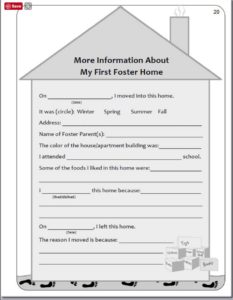
Lifebook Approaches based on how long a child lived with their biological parent.
How you approach a 9-year-old who lived with bio family until last year, is vastly different from the 9-year-old entering the system at age 4 or as an infant.
The 9-year-old who spent most of their life with birth family has clear memories.
The majority of kids who grew up with birth family, despite abuse and neglect,
would like to leave foster care and go home thank you very much.
As a newbie social worker, my biggest mistake was thinking I was somehow rescuing children from abuse and neglect. Nope
Tips: Older Child who grew up with bio family
- Get as much info directly from the child.
- Pull for positive memories.
- Ask about pets, foods.
- Ask about what mom or dad did right.
- Get details for relatives they were close to.
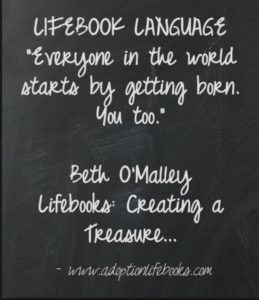
Do not treat the bio parent as the ‘ bad guy’
Tips: Child removed at an early age/infancy
- Teach them about their history.
- Help them to memorize basic life facts ie name of town they were born in.
- Assume no one before you already shared this information.
- Go over bio parents ethnicity.
Naturally, these are just a few ideas. Maybe you already do this on home visits.
You Matter Mantras
- Trauma sucks. You don't.
- Write to express not to impress.
- It's not trauma informed if it's not informed by trauma survivors.
- Breathing isn't optional.
You Are Invited Too & To:
- Heal Write Now on Facebook
- Parenting with ACEs at the ACEsConectionNetwork
- The #FacesOfPTSD campaign.
- When I'm not post-traumatically pissed or stressed I try to Twitter, Instagram & Pinterest.
Thanks for this. I was adopted and I also don’t watch this show (or any like it). I will definitely check out Beth’s resources.
Leanne:
I respect that. I have to say that I think Beth doesn’t watch it either. Her resources are fabulous and so is she! Thanks for commenting and for the work you do!
Cissy